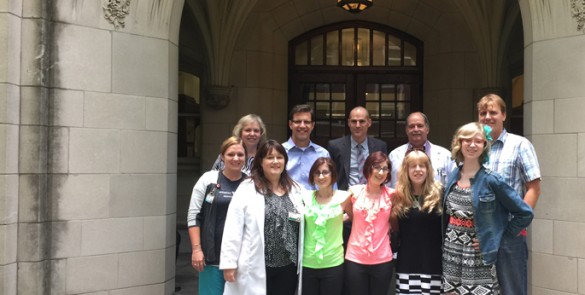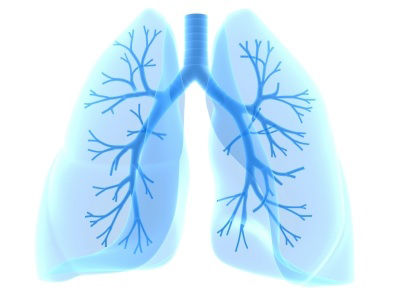
Vanderbilt University Medical Center is launching a research study for a rare disease called Hermansky-Pudlak Syndrome (HPS), an inherited disorder that causes albinism, decreased visual acuity and susceptibility to bleeding due to platelet dysfunction.
Individuals with some types of HPS can develop breathing problems and scarring in the lung, also known as pulmonary fibrosis.
“Patients are at the center of all we do, but nowhere is this more true than for research in rare diseases,” said Lisa Young, M.D., associate professor of Pediatrics, Medicine and Cell and Developmental Biology and director of the Rare Lung Diseases Program at Vanderbilt.
Young has researched HPS for more than a decade, aiming to understand what causes pulmonary fibrosis.
Her research is hoping to find the earliest signs of lung disease in HPS patients and ultimately develop new therapies.
Members of the nonprofit HPS Network are participating in the research study and came to Vanderbilt recently for a site visit and to educate the pulmonary team about living with HPS.
“Novel approaches are needed to make progress in rare diseases, where limited numbers of patients may be available for studies,” Young said. “We are so grateful for the partnership of the HPS Network in these efforts.”
HPS Network Founder and CEO Donna Appell said after the visit that going to Vanderbilt was “beyond my expectations.
“I have known Dr. Lisa Young for a decade and I knew she was terrific. When we were blessed with the opportunity for research, I would have followed her anywhere for her intelligence and expertise,” Appell said.
“She is greatly respected in the rare lung disease community. Meeting all the professionals involved her lab and her colleagues in pulmonary medicine was incredible. There is such great science and advances in pulmonary medicine within Vanderbilt’s walls. It felt so hopeful to be there.”
The five-year study is one of multiple studies being conducted through the Rare Lung Diseases Consortium (RLDC), a network of physicians and patients working to accelerate research and improve medical care for individuals with Rare Lung Diseases.
It is funded by a grant from the National Institutes of Health through the Office of Rare Diseases and the National Center for Advancing Translational Science in a program called the Rare Clinical Diseases Research Network.
Vanderbilt co-investigators include John Worrell, M.D., James Loyd, M.D., Timothy Blackwell, M.D., and Jonathan Kropski, M.D.















